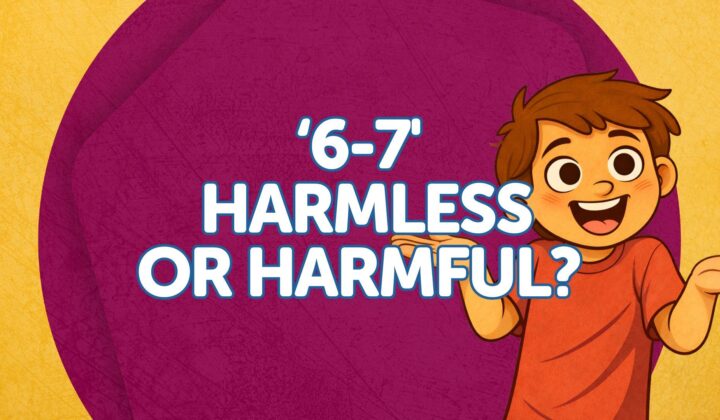Learn more about the journey that led to us equipping kids to carefully evaluate every idea they encounter.
Meet members of our team who have contributed to curriculum development.
Hear from real users of the Foundation Curriculum.
Learn what we believe about God, Jesus, Scripture, and more.
Part 2: Mommy, Why Does God Let Bad Things Happen?
Question 2: If Adam and Eve Were the Ones Who Sinned, Why Do Bad Things Happen to Us?
Such a smart question! In our previous post, we looked at the question, "Where do bad things come from?" And we saw that all the bad things we see in our world come from sin. Some of the bad things, like storms and germs, are the result of God cursing the ground when He punished Adam and Eve. Creation no longer works the way God originally created it to work. Other bad things, like fighting and hurtful words, are the result of people choosing to sin. All people now do bad things because, ever since Adam and Eve disobeyed, humans have been born with a sinful nature. You might be thinking that this is not fair. Why does sin affect you and those you love? It was Adam and Eve who ate the fruit of the tree, not you! That is a great question. We suffer from Adam and Eve's sin for several reasons.
Adam Came First
First, Adam is our leader, the head of the human race, and the decisions he made affect us all. This is similar to the leader of a country. A country's leader decides what laws to make, how to spend the country's money, and whether or not the country will go to war. Not every person in a country agrees with their leader's decisions. But those decisions still affect each and every citizen. This is also similar to your family. Think about where you live. Did you choose to live in that city? No, your parents chose it. But you have to live there because your parents are the head of your family. Their choices affect you. In the same way, you didn’t choose to be born into a fallen world or to be born with a sinful nature. But Adam is the head of the human family, and he chose to sin. As part of his human family, his choice affects you.
We Are Like Adam
The second reason Adam's sin affects us is that Adam is our father. I know, Adam isn’t actually your dad. But he is your great, great, great (keep adding a lot more greats) grandfather. All humans come from Adam, so we are connected to him in a real way. This is similar to your connection with your parents. Think about your dad. I bet you look a little like him. Maybe you have his curly hair, brown eyes, or long legs. Just like you get certain looks from your dad, you get a sinful nature from your great, great, great (keep adding a lot more greats) grandfather, Adam. And just like your body started out in Adam, so did your soul. Your soul is you on the inside – the way you think, feel, and make choices. Your soul is probably similar to your parents’ souls. You may be very kind, like your dad. Or you may be good at art, like your mom. Just like your body came from your parents, so did your soul. And, you guessed it! Your soul originally started in Adam. So, when Adam sinned, all the children that came from him got his sinful nature.
God's Grace to Forgive
Even now that you know why Adam and Eve's sin affects you, you still might feel that this is not fair. It is okay to feel this way. But there is something else that you need to know. Just like you didn't do anything on your own to inherit Adam and Eve's sinful nature, you didn't do anything on your own to deserve forgiveness for your sin. You see, God didn't just leave us stuck here in our sin. Instead, God the Son took on a human body and a human nature, came to earth, lived the perfect life we could never live, suffered, died in our place, and rose again to new life. Now, anyone who turns from their sin and trusts in Him can receive forgiveness and everlasting life. And guess what? We humans have done nothing to deserve this forgiveness or everlasting life. It is an undeserved gift from God.
Even after thinking through all this, you still might be a little confused. You might be thinking, "I still don't understand why bad things happen to me. I am a good person!" That is another excellent thought. I mean, it makes sense that people who do really bad things deserve to be punished for their sin. But what about all the good people out there? Shouldn't God keep bad things from happening to them? That is a great question and it is the question we will explore in our next post.
For Further Study: Psalm 51:1-5, Romans 3:23, Romans 5:18-19, Ephesians 2:1-5, 1 Corinthians 15:21-22
For an adult response to this question, check out Why Does God Allow Evil by Clay Jones.

About Elizabeth Urbanowicz
Elizabeth Urbanowicz is a follower of Jesus who is passionate about equipping kids to understand the truth of the Christian worldview. Elizabeth holds a B.S. in Elementary Education from Gordon College, an M.S.Ed. in Education from Northern Illinois University, and an M.A. in Christian Apologetics from Biola University. Elizabeth spent the first decade of her professional career teaching elementary students at a Christian school. Elizabeth now works full time on developing comparative worldview and apologetics resources for children. Her goal is to prepare the next generation to be lifelong critical thinkers and, most importantly, lifelong disciples of Jesus.
Related Posts and insights

Affirm the Questions of the Children You Are Teaching
Affirm children’s questions to foster curiosity and lifelong learning. Discover a simple, biblical strategy for building a love of learning.

How Should Christians Respond to the "6 7" Trend? Helping Kids Think Biblically About Cultural Phrases
How should Christian parents handle the "six seven" trend? Learn to avoid the genetic fallacy and guide your kids to think biblically about cultural phrases.

How Do We Explain the Doctrine of Election to Kids?
How do you explain the doctrine of election to kids without causing fear? Discover how Scripture's promises bring peace and assurance to children's hearts.
